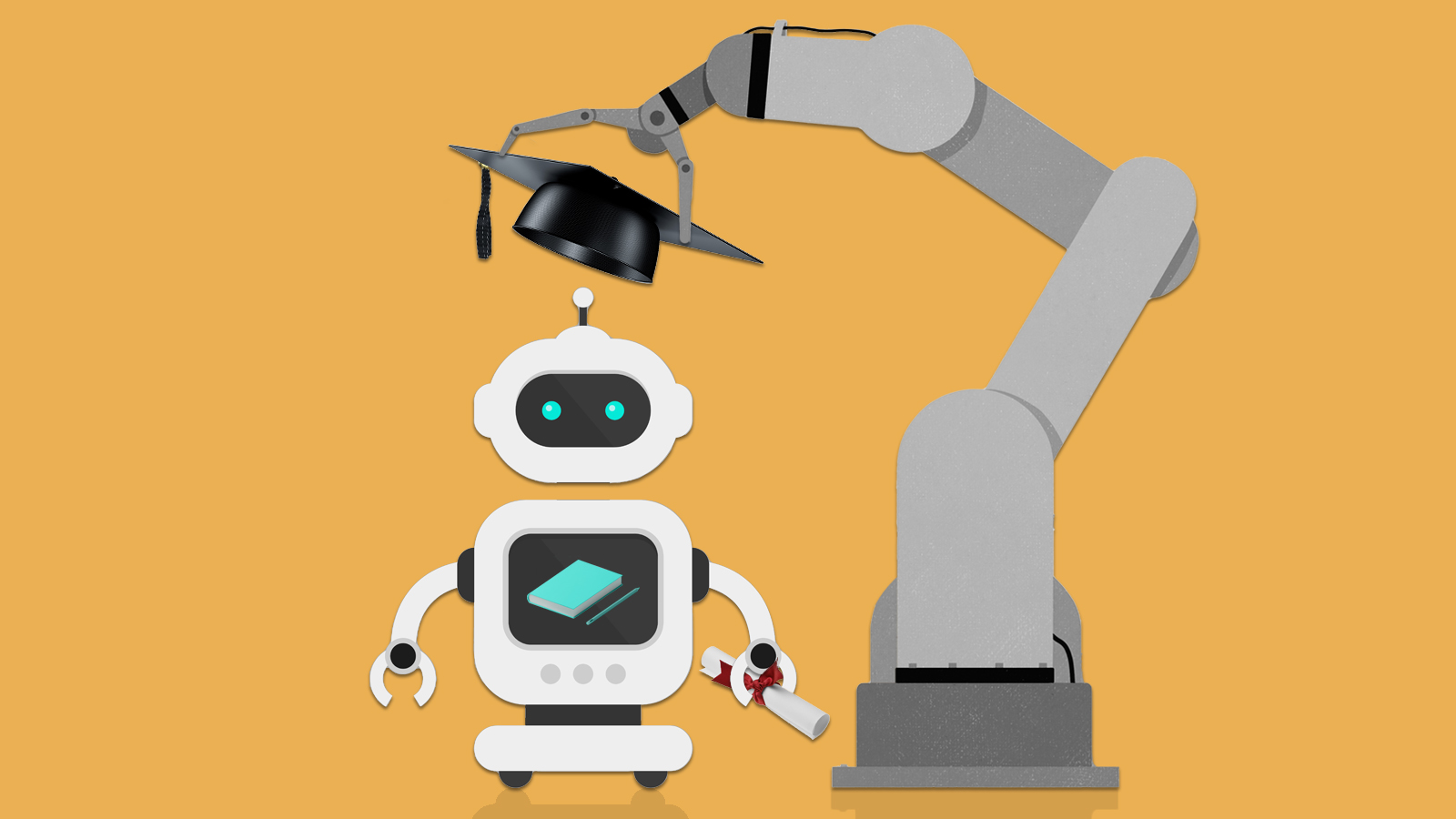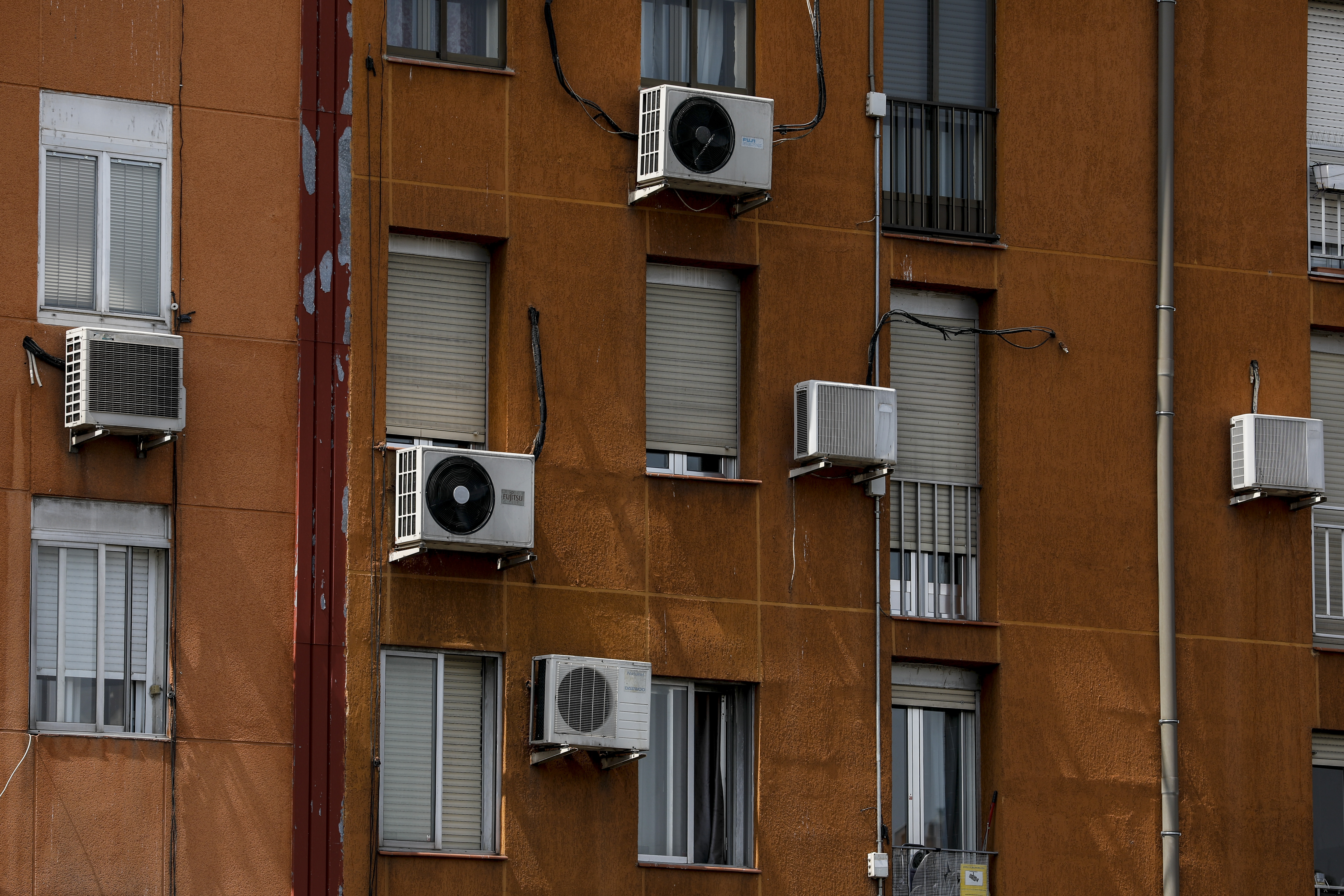AI's boost for students and teachers in higher education


A free daily email with the biggest news stories of the day – and the best features from TheWeek.com
You are now subscribed
Your newsletter sign-up was successful
The use of artificial intelligence impacts every industry and sector of society, including news, gaming and fashion. And academia is no exception. Colleges and universities are adapting to new ways of enrolling, teaching and retaining students with AI technology.
Part of the motivation is that "with fewer college-age students in the pipeline," universities need to "employ even more sophisticated enrollment-management strategies to fill their classes," Best Colleges reported. But while many schools are embracing the new technology, others are wary of its drawbacks.
Benefits for students
Students entering college who need financial assistance can use RaiseMe. This AI tool provides access to "micro-scholarships," which can be earned through achievements aside from good grades including "club involvement, sports, volunteer activities and the like," according to Harvard Advanced Leadership Initiative. "For each achievement, students are awarded more that can be applied to the cost of attending college."
The Week
Escape your echo chamber. Get the facts behind the news, plus analysis from multiple perspectives.

Sign up for The Week's Free Newsletters
From our morning news briefing to a weekly Good News Newsletter, get the best of The Week delivered directly to your inbox.
From our morning news briefing to a weekly Good News Newsletter, get the best of The Week delivered directly to your inbox.
Once in school, artificial intelligence can help students with time and financial management. "AI-generated emails can remind students about important deadlines, prompt them to register for classes, turn in assignments and pay their fees on time," reported Forbes.
And for those finishing their studies, AI can assist with graduating on time and entering the workforce, according to Best Colleges. Using an AI resume builder can assist college grads with landing a job, per Tom's Guide.
Benefits for teachers and administrators
Schools are finding benefits in both student retention and teaching. Nova Southeastern University uses Aible to identify students who are most likely to leave the school and "prioritize its retention efforts for the most at-risk students," according to Forbes. And Georgia Tech uses a virtual teaching assistant known as Jill Watson.
The AI tool Packback offers real-time responses from teachers. The technology "helps instructors moderate class discussions, give feedback and grade participation automatically," Harvard Advanced Leadership Initivate reported. This allows students to know their current academic standing in a course, giving them an opportunity for improvement where needed, stated Entrepreneur.
A free daily email with the biggest news stories of the day – and the best features from TheWeek.com
"The less students need educators to be the main source of knowledge, the more educators can focus on developing the ability to curate, guide, critically assess learning," Vriti Saraf, the CEO and founder of K20 Educators, told the World Economic Forum. This can "help students gain skills that are so much more important than memorizing information."
Enabling and detecting plagiarism
According to Forbes, "In a particularly controversial use, AI-based software is increasingly able to detect plagiarized assignments." At Florida Gulf Coast University, the dean of students office began to "tag academic misconduct cases for instances of generative-AI usage, and an explicit syllabus statement [was] generated for faculty use to prevent cases of unauthorized assistance," according to the office's June agenda, as reported by the Pensacola News Journal.
A former student at the University of Bristol used ChatGPT on an old essay as an experiment and received a 65%. In response, a spokesperson for the university told BBC News that "ChatGPT's unauthorized use, like that of other chatbots or artificial intelligence software, would be considered a form of cheating under our assessment regulations." Steve West, the vice chancellor at the University of the West of England, put it simply: "Don't take the chance."
Kelsee Majette has worked as a social media editor at The Week since 2022. In 2019, she got her start in local television as a digital producer and fill-in weather reporter at NTV News. Kelsee also co-produced a lifestyle talk show while working in Nebraska and later transitioned to 13News Now as a digital content producer.
-
 Corruption: The spy sheikh and the president
Corruption: The spy sheikh and the presidentFeature Trump is at the center of another scandal
-
 Putin’s shadow war
Putin’s shadow warFeature The Kremlin is waging a campaign of sabotage and subversion against Ukraine’s allies in the West
-
 Media: Why did Bezos gut ‘The Washington Post’?
Media: Why did Bezos gut ‘The Washington Post’?Feature Possibilities include to curry favor with Trump or to try to end financial losses
-
 Artificial intelligence goes to school
Artificial intelligence goes to schoolSpeed Read AI is transforming education from grade school to grad school and making take-home essays obsolete
-
 Could AI be harmful to people's health?
Could AI be harmful to people's health?The Explainer Artifical intelligence's use in online content and health care tech raises concerns
-
 NPC streamers are having a moment
NPC streamers are having a momentSpeed Read A look behind the viral TikTok trend that has the internet saying, "Mmm, ice cream so good"
-
 Creatives are fighting back against AI with lawsuits
Creatives are fighting back against AI with lawsuitsSpeed Read Will legal action force AI companies to change how they train their programs?
-
 Forget junk mail. Junk content is the new nuisance, thanks to AI.
Forget junk mail. Junk content is the new nuisance, thanks to AI.Speed Read AI-generative models are driving a surge in content on fake news sites
-
 World's reduced thirst for oil may be foiled by developing countries' challenges
World's reduced thirst for oil may be foiled by developing countries' challengesSpeed Read Will developing nations slow the peak of global oil demand?
-
 The movement to make A/C energy efficient
The movement to make A/C energy efficientSpeed Read Air conditioners have been bad for the planet, but we'll likely continue to need them.
-
 AI: The worst-case scenario
AI: The worst-case scenarioSpeed Read Artificial intelligence’s architects warn it could cause human "extinction." How might that happen?
